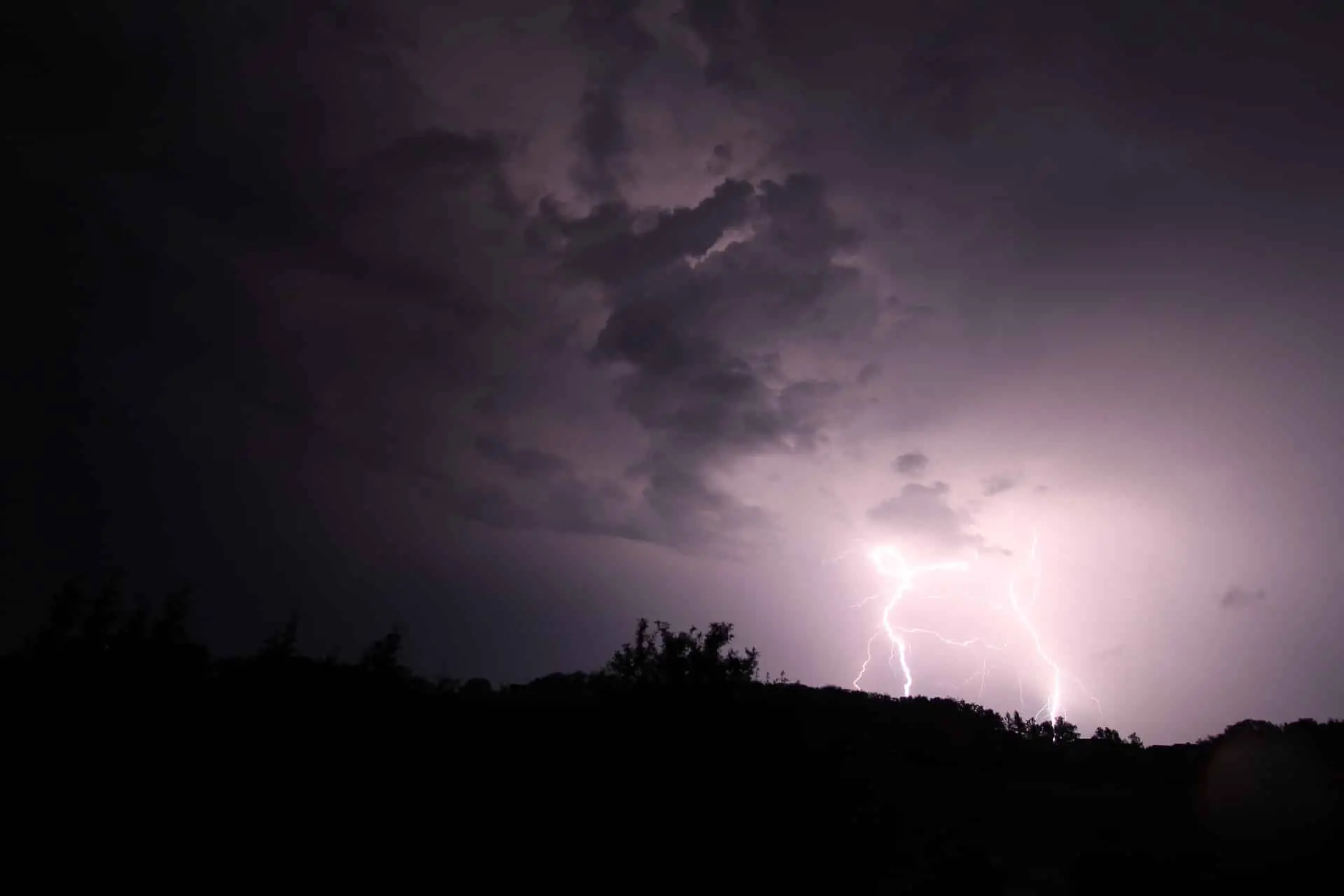
FULL POEM - SCROLL DOWN FOR LINE-BY-LINE ANALYSIS

LINE-BY-LINE ANALYSIS
STANZA 1
The rain set early in to-night,
The sullen wind was soon awake,
The description of this menacing weather in the first two lines of the poem is a pathetic fallacy, foreshadowing possible danger, thereby setting a suspenseful tone.
It tore the elm-tops down for spite,
And did its worst to vex the lake:
The wind is personified as ‘sullen’ (meaning bad-tempered) with the effect of making mother nature and its supernatural power appear violent and threatening, carrying out destruction for amusement.
I listened with heart fit to break.
When glided in Porphyria; straight
The poem is a dramatic monologue, written from the speaker’s perspective, the mindstate of whom the reader gets a first glimpse in this fifth line. He describes his heart as ready to break, suggesting emotional instability (although the seriousness of which remains unknown at this stage) as ‘Porphyria’, the woman he loves, joins him in his remote cottage.
She shut the cold out and the storm,
And kneeled and made the cheerless grate
Blaze up, and all the cottage warm;
The speaker describes an environmental shift from cold to warmth in Porphyria’s presence as ‘she shut the cold out’ and lit the fire, making ‘all the cottage warm’. Metaphorically, this shift represents a shift in his emotions from despair to reassurance that she cares enough for him to join him on this bleak night.
Which done, she rose, and from her form
Withdrew the dripping cloak and shawl,
And laid her soiled gloves by, untied
Her hat and let the damp hair fall,
The speaker meticulously lists each item of clothing that she removes, revealing that he is focusing on her obsessively. She seems comfortable with him, even untying her hair and letting it fall (considered sinful in Victorian times due to the perception that it was sexually enticing – perhaps Porphyria’s intention).
And, last, she sat down by my side
And called me. When no voice replied,
She put my arm about her waist,
And made her smooth white shoulder bare,
The speaker’s silence is somewhat sinister, with his lack of response concealing his emotions which were unstable prior to Porphyria’s arrival. His reticence gives the impression that he is troubled, unsure of how to act or respond to the situation. Porphyria attempts to put him at ease through intimacy.
And all her yellow hair displaced,
And, stooping, made my cheek lie there,
And spread, o’er all, her yellow hair,
These three lines narrate further how Porphyria attempts to get closer to him, likely in an effort to entice him sexually. ‘Her yellow hair’ is referenced twice and its significance as a symbol for her impending murder is revealed later in the poem. The speaker’s recognition of it at this stage is important as, potentially subconsciously at this stage, he contemplates her murder.
Murmuring how she loved me — she
Too weak, for all her heart’s endeavour,
To set its struggling passion free
From pride, and vainer ties dissever,
And give herself to me for ever.
In this pivotal section of the poem, Porphyria quietly declares her love for the speaker. However, he describes that, despite how strong her feelings are, she is ‘too weak’ to fully commit herself to him, inhibited by ‘pride’ (it is inferred that her place is above his in social hierarchy) and ‘vainer ties for ever’ (other factors which the speaker deem s trivial). Her lack of commitment inevitably angers the speaker but, alas, he offers no insight as to what extent.
But passion sometimes would prevail,
Nor could to-night’s gay feast restrain
A sudden thought of one so pale
For love of her, and all in vain:
Sometimes this love would drive her towards him, times when passion outweighed those factors preventing long-term commitment. This night that the speaker narrates is one such occasion, with Porphyria leaving an exclusive party to be with him – prioritising romance over social obligation.
So, she was come through wind and rain.
She left a party, representing wealth and luxury, to endure the dismal weather just to be with the speaker alone in this remote cottage. He recognises this and the reality of her love that she feels for him.
Be sure I looked up at her eyes
Happy and proud; at last I knew
Porphyria worshipped me; surprise
Made my heart swell, and still it grew
He now also acknowledges that she is ‘happy’ to be with him and ‘proud’ that she completed the journey to do so – she feels that being in his company was worth it. From this, the speaker concludes that Porphyria worshipped him (a word that gives him power, control and superiority over her – as though he is a Godly figure), adamant that she truly loves him despite not committing herself fully to him. Worryingly, he revels (his ‘heart swells’ with delight) in this power and control that he feels he holds over her – love to the speaker is not about affection, but about possession.
While I debated what to do.
This line heightens the suspense as the reader is left unsure of what the speaker is planning to do but, through the use of the word ‘debate’, it sounds purposeful and well thought out.
That moment she was mine, mine, fair,
Perfectly pure and good: I found
The tone of the speaker becomes increasingly unnervingly possessive over Porphyria, repeating the word ‘mine’, to assert a feeling of dominance and control over her. In this moment he believes that she worships him and that she is ‘perfectly pure and good’ (potentially a reference to her virginity). He seeks to preserve this and the feeling of power and control he has over her.
A thing to do, and all her hair
In one long yellow string I wound
Three times her little throat around,
And strangled her. No pain felt she;
In a shocking twist, the speaker suddenly murders Porphyria by strangling her with her own hair – tragically using her own hair (an objectification of her beauty and feminism) to kill her. He refers to her throat as ‘little’ to illustrate her innocence and vulnerability which, from his sociopathic perspective, he believes he has conserved but, in reality, he has exploited.
I am quite sure she felt no pain.
The speaker attempts to justify her murder by claiming that he’s ‘quite sure she felt no pain.’ It’s distressing to have an insight into his thoughts in the immediate aftermath of the murder and his attempts at justification make him seem even more deranged.
As a shut bud that holds a bee,
In this simile, the speaker compares Porphyria’s closed eyes to the beauty of nature. It’s another disturbing insight into the psychology of the speaker as he likens her unnatural death to the natural reproductive process of flowers. Additionally, this symbol of new life juxtaposes how Porphyria’s life was cut short.
I warily oped her lids: again
Laughed the blue eyes without a stain.
Her eyes appear happy and ‘without a stain’, meaning untainted. By looking into her eyes he feels that his intentions have been achieved. They embody the state of purity and innocence that he longed to preserve.
And I untightened next the tress
About her neck; her cheek once more
Blushed bright beneath my burning kiss:
The speaker then narrates himself untying Porphyria’s hair from around her throat, seeking to restore her appearance in the moments, when she ‘worshipped’ him, before he murdered her. His ‘burning kiss’ is another disturbing image, in one sense signifying suffering but also deep passion – encapsulating the psychopathic actions and motivations of the speaker.
I propped her head up as before,
Only, this time my shoulder bore
Her head, which droops upon it still:
The smiling rosy little head,
The speaker delights in the newfound control he has over Porphyria. Previously, her shoulder bore his head but, after the speaker has asserted his dominance through murder, this role is reversed and he assumes the position of power. Distressingly, he objectifies her ‘smiling rosy little head’ as though her corpse is now in his possession now that she lacks free will. The use of the word ‘little’ emphasises the speaker’s dominance and control he now has over Porphyria – just what he intended!
So glad it has its utmost will,
That all it scorned at once is fled,
And I, its love, am gained instead!
Porphyria’s love: she guessed not how
Her darling one wish would be heard.
The speaker is perturbingly delusional, believing that he has done Porphyria a favour by killing her and, thereby, freeing her of all her worries, replacing them with the man that she loves. The speaker is convinced she thanks him for it, for granting ‘her darling one wish’.
And thus we sit together now,
And all night long we have not stirred,
And yet God has not said a word!
Sickenly, by the end of the poem the speaker has achieved all that he wanted, harrowingly sitting with Porphyria’s corpse ‘all night long’ – a deeply disturbing and moving image. In the final line of the poem, the speaker rationalises that his actions have been heroic, rather than psychopathic, claiming that ‘God has not said a word’; delusionally concluding that God condones his actions, agreeing that Porphyria’s death was all that she desired!


